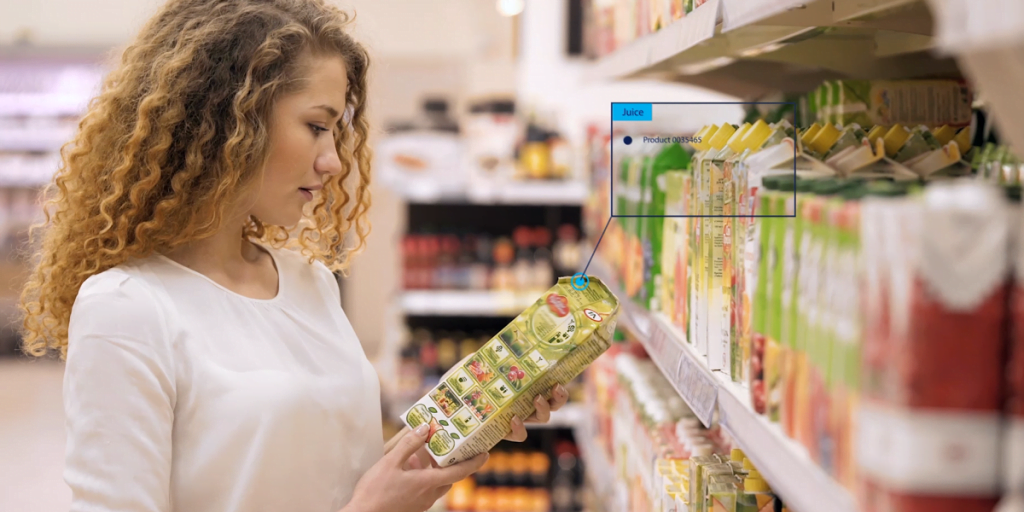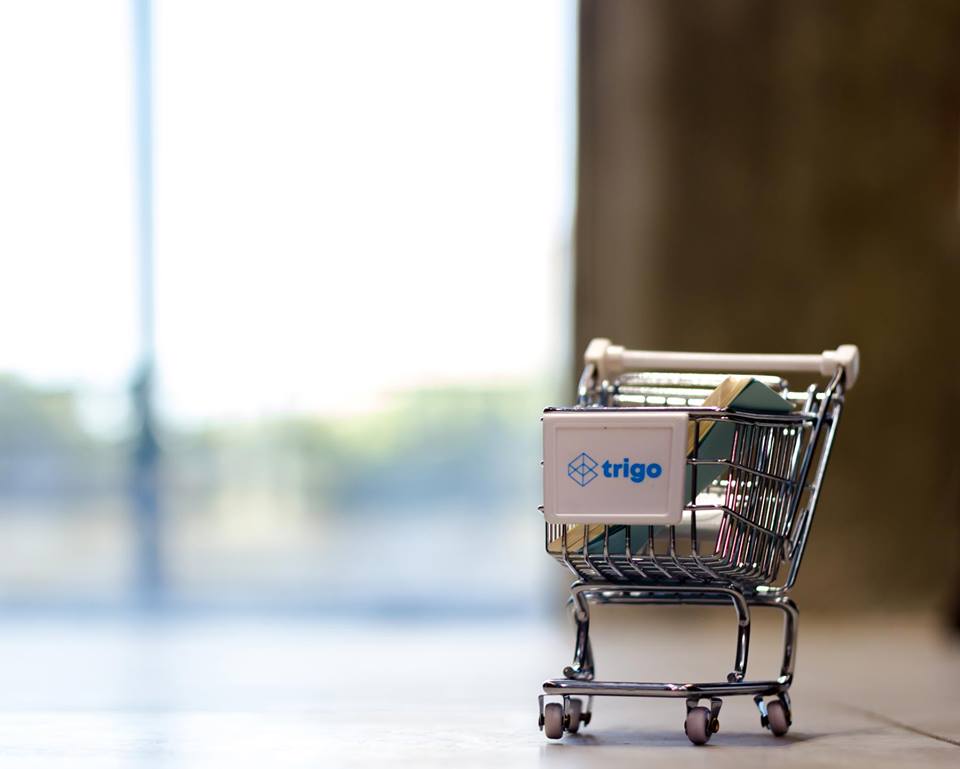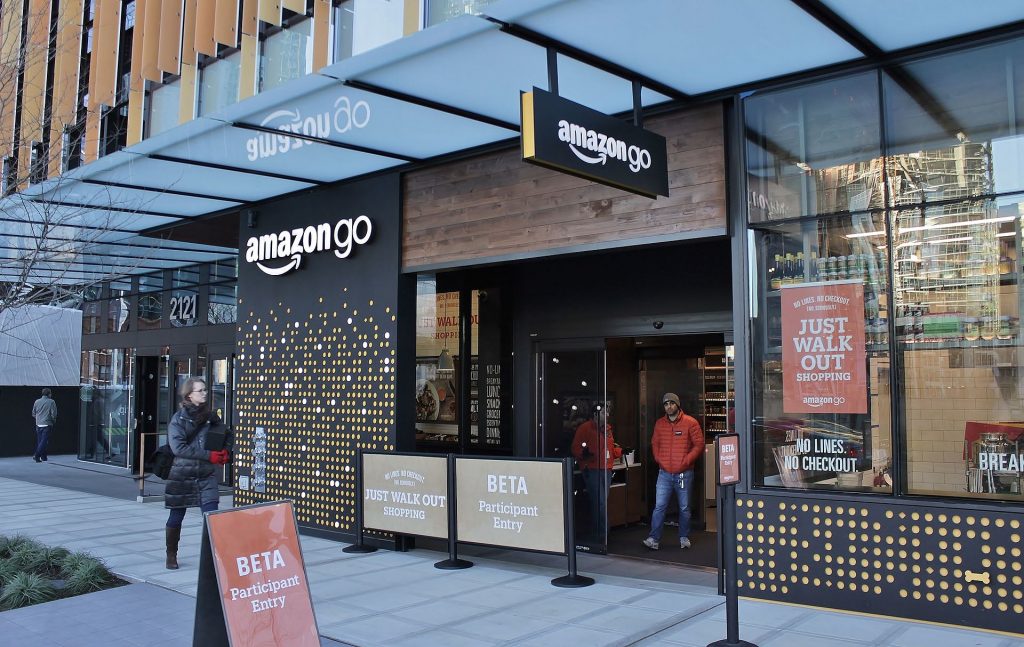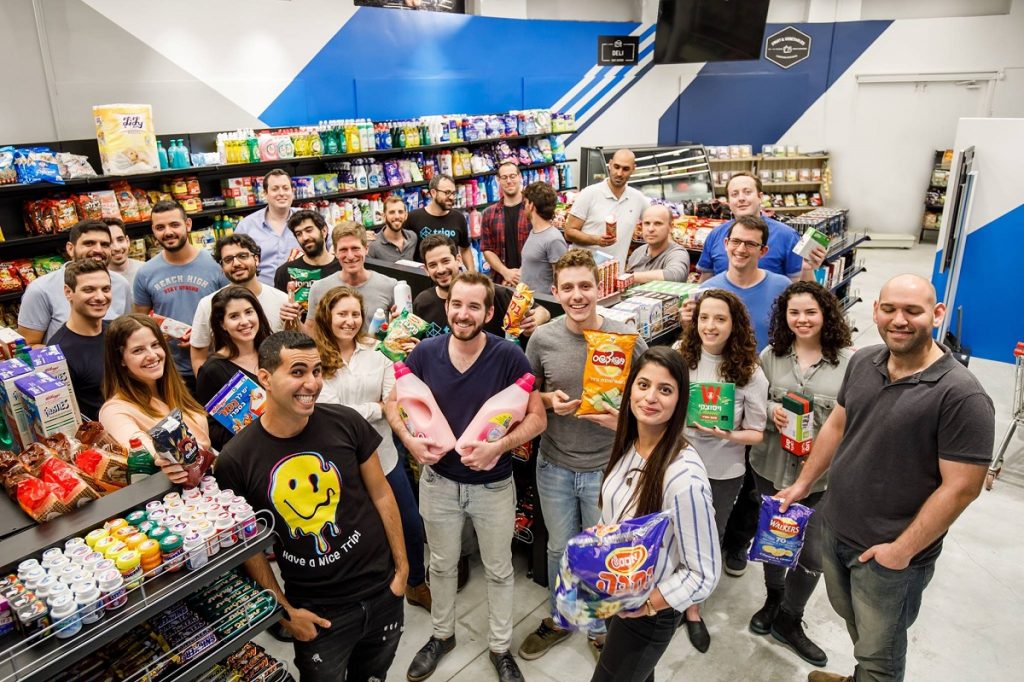Grab-and-go shopping is hailed as the future of the retail experience, and Israel’s Trigo Vision is right there for it. The Israeli startup’s cutting-edge, computer vision platform would allow grocery retailers to compete in a space currently occupied solely by Amazon Go, the world’s first automated supermarket where shoppers pick up their needed items and walk out of the store without going through a cashier, paying automatically via an app.
The first Amazon Go store launched in late 2016, and the retail giant now has 11 such locations in four US cities. And with Amazon being Amazon, there are big plans for the future.
Trigo Vision, meanwhile, was founded in 2017 and emerged from stealth mode a year later with $7 million in seed funding to begin rolling out its sophisticated checkout-free technology.
The company has been working with Shufersal, Israel’s largest supermarket chain, to bring the technology to its stores – starting with a newly announced pilot program in of its Tel Aviv branches.
At the Shufersal in Century Tower on Ibn Gvirol Street, customers can take products from shelves in the store and leave without paying a human cashier or going through a self-service checkout. Instead, the bill can be paid through a smartphone app, just like Amazon Go. Ran Peled, Trigo’s VP of Marketing says the company’s computer vision technology is gradually being employed in the store while “few things are still in development.”
But he calls the move “unprecedented on a global scale.”
“Shufersal is the first retailer in the world to announce the use of this tech in an existing store,” Peled tells NoCamels in a phone interview. Amazon Go stores, meanwhile, are conceived and designed with the tech already built-in.
“We are actually working on it with them [Shufersal], not for them,” he adds.

The supermarket’s ceiling is covered with a camera network that uses Trigo’s platform through a feed to identify a product that the customer takes from a shelf. The customer’s products are then tallied on a bill. Real-time results are currently being analyzed, Peled explains.
Shufersal first announced a partnership with Trigo Vision in November 2018 when it signed an agreement to install the company’s advanced automated retail platform across its 272 stores nationwide.
Trigo Vision – Redefine retail from Trigo Vision on Vimeo.
“We are very excited to begin the process of development and embedding of Trigo Vision’s retail automation platform in order to offer our customers a completely seamless checkout experience,” Itzik Abercohen, CEO of Shufersal, said at the time. “We believe our cooperation with Trigo will transform the shopping experience and will minimize our customers’ friction points in the stores. This venture will also drive efficiency and minimize costs across our operation. Its scalability and flexibility also means that we can roll out this technology across all of our stores, whether small express shops or larger hypermarkets.”
“Shufersal is a clear market leader in adopting innovation and bringing new retail experiences to its customers. They immediately recognized the potential of our platform and we’re delighted to be collaborating with them, propelling the forefront of the next retail era here in Israel,” said Trigo Vision CEO and co-founder Michael Gabay.
Trigo’s vision for automated retail
Though Trigo Vision’s tech was developed by members of a team of AI and algorithm experts who once worked at companies like Google, Amazon, and Apple, Gabay has said it is still simple enough to use by both customers and retailers.
And there are other key differences between Trigo Vision’s tech and Amazon Go’s “sensor fusion” which it uses to create what it calls its “Just Walk Out” technology.

“The fact of the matter is our tech is going to cover two times the square footage and five times the number of products that Amazon offers,” Peled says.
Sign up for our free weekly newsletter
SubscribeThere is also a focus on providing an advanced, seamless customer experience without losing the retailer’s character.
“I think retailers want to improve customer experience. They understand that people don’t want to wait [in lines],” Gabay said last year. “We developed an ecosystem and a scalable solution for every store. We’re not forcing the retailers to change their layout.”

Technology plays “a big role” in customer satisfaction, Shufersal Chief Executive Officer Itzik Abercohen said when the company first announced the partnership. Working with Trigo “will also drive efficiency and minimize costs across our operation,” he said.
“There are many studies and research about how the end of the experience is most important and most memorable,” says Peled, “Trigo is fixing the moment at the end of the journey,” also known as “last mile.”
The startup’s system also allows for different payment systems. Customers can register their credit card details before they shop in a store, after which Trigo Vision’s cameras will identify them when they enter a facility and charge them automatically when they leave. A second method would be to have stores install a payment screen at the exit listing the items selected and leaving the customer to simply confirm that the list is correct. A third option is to use the Trigo Vision app, which can also send notifications to customers while they are in the store.
The Shufersal location in Tel Aviv is using the company’s first and second methods so far.
If customers prefer to pay cash, they can use the payment terminals located in the store, Peled says, where items need not be scanned. Trigo Vision’s system identifies goods in the basket, hand, or bag – without identifying the shopper, he emphasizes – and displays them on a screen. Customers can then pay by cash or credit.
The cash option is potentially a response to the backlash Amazon Go has received for its cash-less system. In the US, the city of Philadelphia has passed a law that requires all businesses to accept cash payments and similar legislation is being considered in San Francisco, Chicago, Washington, and New York, according to reports.
In a September 2018 interview, Gabay told NoCamels the company was also in talks with major European and American stores.
Israeli retail tech
Another Israeli retail tech startup working in the virtual checkout sector is SuperSmart, a Rosh Haayin-based startup that developed a mobile app that doubles as a handheld scanner so that shoppers can use their smartphones to scan item barcodes. In January 2019, it rebranded as “SuperSmart powered by Bizerbra” named for partnership with Bizerbra, a German provider of weighing, slicing, and labeling tech.
Founded in 2014, Supersmart’s team of software developers, algorithm experts, and retail business leaders create various products for both customers and the retailers.
SEE ALSO: As Amazon Opens First Automated Supermarket, Meet The Israeli Startups Shaking Up Supermarket Tech
Supersmart currently works with two supermarket chains, Israel’s Osher Ad, and the German-based, global retailer Metro Group.
The company’s founder and CEO Yair Cleper reportedly met with Walmart CEO Doug McMillon during a visit to Israel in March 2019, according to a Globes report. McMillan spoke to Cleper about Walmart’s cancellation of the Scan & Go service for automated scanning earlier this year because of a rise in thefts from the store. Cleper was later invited to the Walmart headquarters in Bentonville, Arizona to present products that are part of their scan-and-go loss prevention system including the Mini Wave for validation of scanned products, the Walk-Through, a scale surface and two cameras that can be placed on the store’s floor, for validation of bigger carts, and SuperSmart’s app.
There is no word yet on an official partnership between Walmart and SuperSmart.
Related posts

Editors’ & Readers’ Choice: 10 Favorite NoCamels Articles

Forward Facing: What Does The Future Hold For Israeli High-Tech?

Impact Innovation: Israeli Startups That Could Shape Our Future




Facebook comments